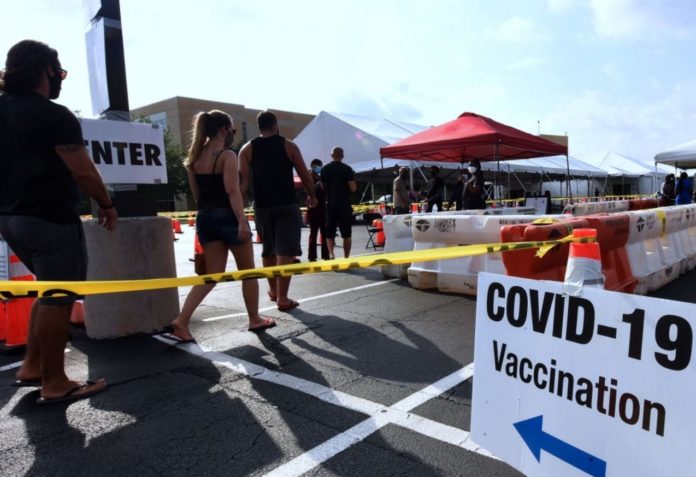A team of allergists from Massachusetts General Hospital (MGH) have come up with a new update on how safe vaccines are for them and who should consult an allergist.
In addition to new guidance on the Pfizer-BioNTech and Moderna COVID-19 vaccines, this update also includes the Janssen COVID-19 vaccine.
Only some people with a history of high-risk allergies need to consult an allergist before getting vaccinated for COVID-19, new research suggests published in the Journal of Allergy and Clinical Immunology: In Practice.
Scientists have updated their previous guidelines after analyzing data from more than 65,000 people who had been fully vaccinated.
- Does This Mean We Stopped Being Animal and Started Being Human Due to ‘Copy Paste’ Errors?
- The One Lifestyle Choice That Could Reduce Your Heart Disease Risk By More Than 22%
- Aging: This Is What Happens Inside Your Body Right After Exercise
- Immune-Boosting Drink that Mimics Fasting to Reduce Fat – Scientists ‘Were Surprised’ By New Findings
- Gun Violence in America: What They Don’t Talk About at the Debate
“With more time and experience, we have been able to significantly narrow the group of patients with prior allergies who require an allergist assessment before COVID-19 vaccination”
said one of the allergists at Massachusetts General Hospital, Dr. Kimberly Blumenthal.
“We now advise that only the rare individuals who have had a recent severe allergic reaction to polyethylene glycol, an ingredient in the vaccines, see an allergist or immunologist for evaluation, which may include skin testing”
In contrast, people with severe allergies to food, oral medications, latex, bee stings, or venom can safely receive Pfizer-BioNTech, Moderna, and Johnson & Johnson / Janssen vaccines for coronavirus, according to the study.
Researchers note that severe allergic reactions to vaccines are extremely rare. However, vaccination centers should continue to monitor high-risk people for 30 minutes after vaccination. They should also have staff trained to recognize and manage allergic reactions.
The study authors also suggest some changes in the way patients with a history of allergies are evaluated before receiving the COVID-19 vaccine. This should include clear and simple questions aimed at identifying those who are eligible for all coronavirus vaccines, without the need for an allergist evaluation.
“Our main goal is to enable as many individuals as possible to receive a COVID-19 vaccine safely and avoid unnecessary vaccine hesitancy due to a lack of knowledge around allergic reactions to vaccines”
the lead author Aleena Banerji, MD, clinical director of the Allergy and Clinical Immunology Unit at MGH concluded.
